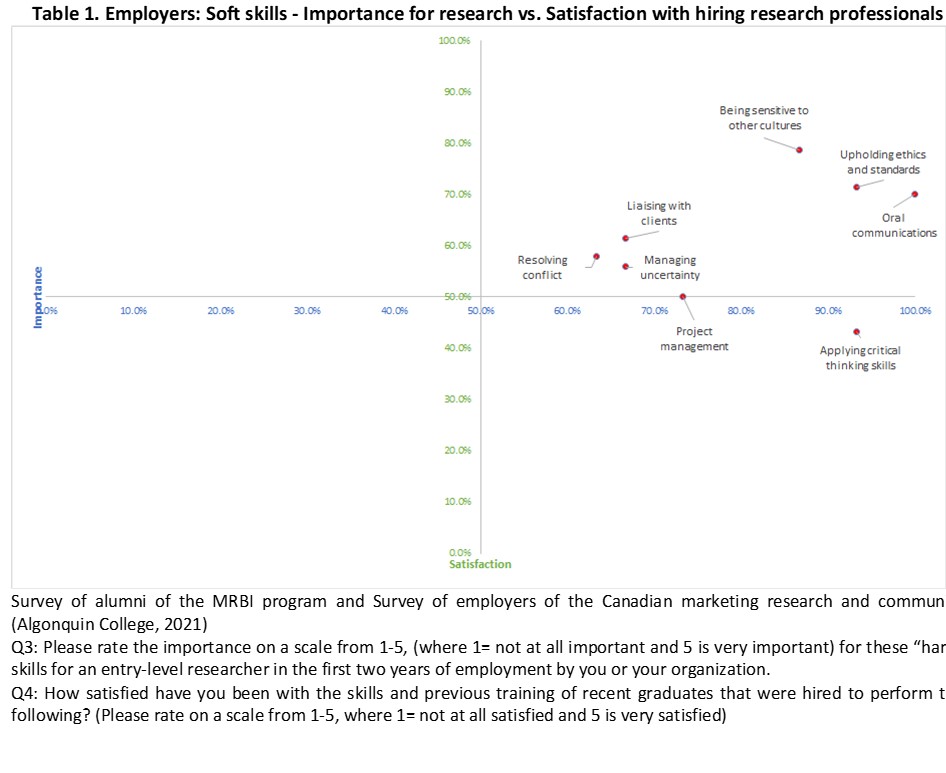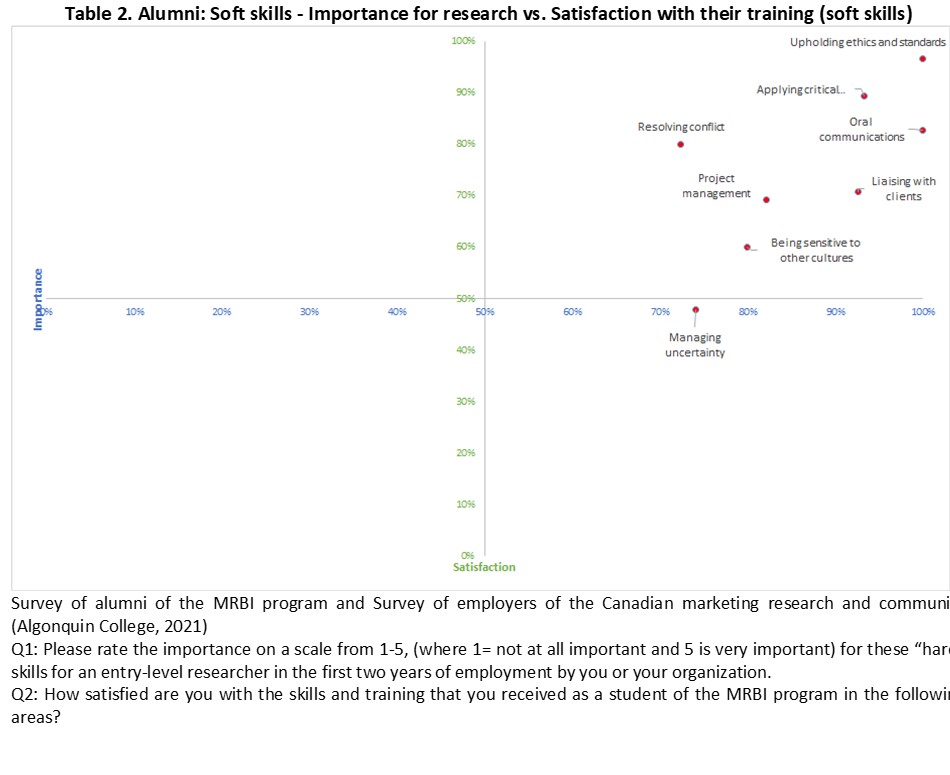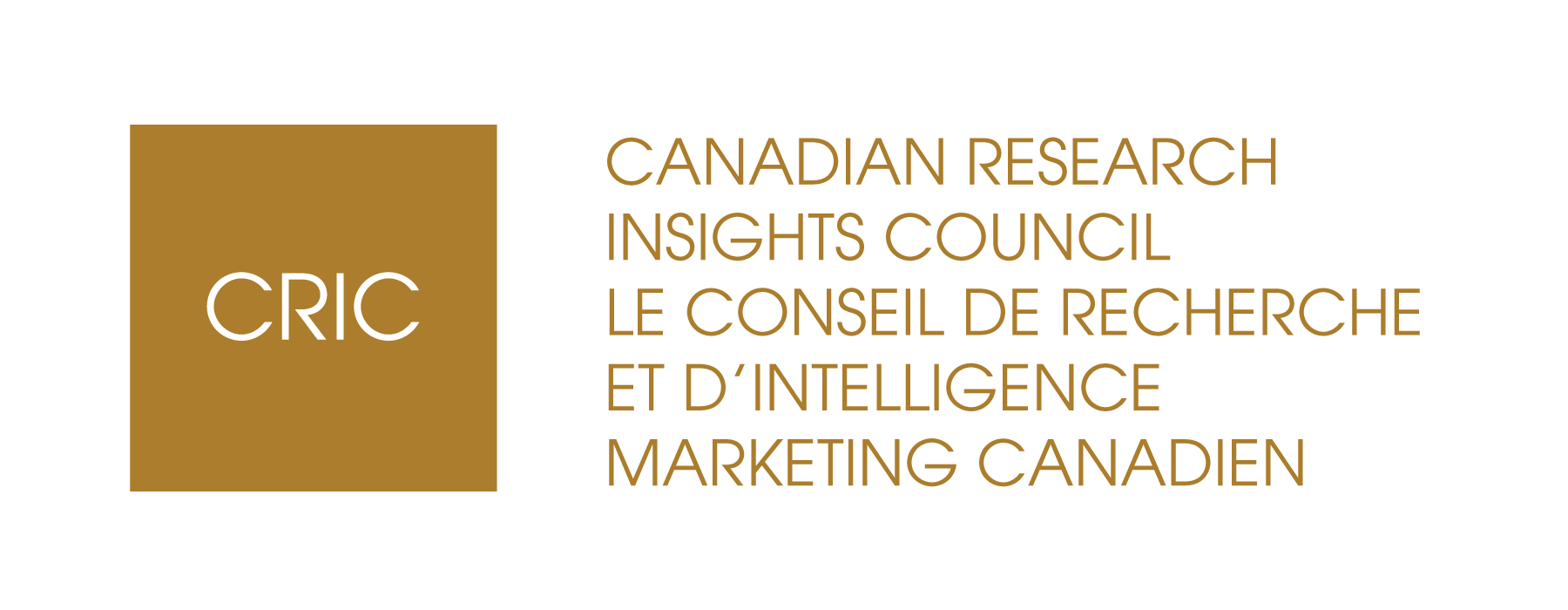Marketing Research Skills for Success is an ongoing feature in foresight showcasing the unique skills and training needs to thrive in today’s industry. Inaugural bloggers to this section Miguel Huapaya Toledo and Tasnim Islam write about their research and study on the skills needed for today’s entry-level researchers in this second of three blog posts by them on a study they recently conducted at Algonquin College.
Essential Attributes for Success in Research: the “Soft” Skills
By Miguel Huapaya Toledo and Tasnim Islam
According to the author of Emotional Intelligence, a highly-rated influential business management bestseller, and leading psychologist Daniel Goleman, soft skills are responsible for 90% of what allows people to move up the success ladder, “Soft skills are the ability to communicate and work well together” (Asai, 2020).
Continuing with foresight‘s series of Skills for Success in Marketing Research blog posts, the focus of this second article is to discuss the attributes necessary for success as marketing research professionals. Soft skills help you build relationships and solve problems so that you can apply your hard skills to their fullest extent (Indeed, 2021).
[To read the first blog post: Required “Hard” Skills for Marketing Research Professionals click here]
In the survey of alumni of the MRBI program and the survey of employers of the Canadian marketing research and community (Algonquin College, 2021) the following “soft” skills were defined, based on the CAIP competency framework, to measure 1) their level of importance in the workplace and 2) the level of employer or alumni satisfaction with recent graduates possessing those skills.
“Soft” skills used in the study: oral communications; liaising with clients; project management; managing uncertainty; being sensitive to other cultures; applying critical thinking skills; upholding ethics and standards; resolving conflict.

All of the employers (100%) considered oral communication an essential soft skill. Three other soft skills that came up as critical were (87% to 94% of employers): applying critical thinking skills, upholding ethics and standards, and being sensitive to different cultures; nearly three-quarters (74%) of all employers identified project management as an important skill for recent graduates to have. Regarding employers’ satisfaction, most (80%) were satisfied with graduates being sensitive to other cultures. Seventy percent of the employers were happy with graduates’ ability to uphold ethics standards and oral communication. Although applying critical thinking skills and project management skills were identified as necessary to the majority of employers (94% and 74% respectively), fewer employers were found to be very satisfied with these two soft skills among recent graduates in their organizations.

Similar to employers, all of the alumni agreed that oral communication is one of the most important soft skills. In addition, all alumni also agreed that upholding ethics and standards is an essential soft skill for new researchers. More than 90% of alumni believed that applying critical thinking and liaising with clients are important, while 80% of alumni identified project management and being sensitive to other cultures as critical skills for an entry-level researcher. The alumni’s highest satisfaction with learning these skills in the MRA (formerly MRBI) program were as follows: upholding ethics and standards (97%), applying critical thinking skills (90%), oral communication (83%), resolving conflict (80%), liaising with clients and project management (70%).
This article’s key takeaway is that the three most critical soft skills for an entry-level researcher are: oral communication, applying critical thinking skills, and upholding ethics and standards (all mentioned by both employers and alumni).
Methodology:
The study was conducted in cooperation with CRIC and CAIP, under the supervision of Algonquin College professors Nathaniel Stone and Todd Armstrong.
Survey of employers in the Canadian marketing research industry and community: Online survey with Survey Monkey; from June 1st to June 21, 2021; 51 completed responses; Language: English and French.
Survey of alumni of the MRBI program: Online survey with Survey Monkey; from June 1st to June 11, 2021; 30 completed responses; Language: English.
References:
Algonquin College (2021). Survey of alumni of the MRBI program and Survey of employers in the Canadian marketing research industry. https://algonquinlivecom-my.sharepoint.com/:b:/g/personal/huap0001_algonquinlive_com/EUbbZIUvO31JggGJxGqXGu4BbQuJDDfO2tG52DqxTvmBBg?e=SC24Yd
Asai, S. (2020). Saving Soft Skills From Extinction. TEDx. Retrieved from: https://www.ted.com/talks/scott_asai_saving_soft_skills_from_extinction
Indeed (2021). Hard skills vs. Soft skills. Retrieved from: https://ca.indeed.com/career-advice/resumes-cover-letters/hard-skills
About the Authors:


Miguel Huapaya Toledo and Tasnim Islam are graduating students of the final semester of the Marketing Research & Business Intelligence (MRBI) program at Algonquin College and they have been working on several projects within the College.
If you liked this blog post, register as well for CRIC’s upcoming webinar on August 24, Tuesday on“Careers in Marketing Research: Opportunities in the Coming Decade” featuring a range of perspectives on opportunities in the coming decade.

